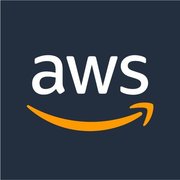Machine Learning Tools
Machine Learning Tools Overview
Machine Learning Products
(1-25 of 142) Sorted by Most Reviews

RStudio
RStudio is a modular data science platform, combining open source and commercial products. The vendor states their open source offerings, such as the RStudio IDE, Shiny, rmarkdown and the many packages in the tidyverse, are used by millions of data scientists around the world to…
Key Features
- Visualization (11)88%8.8
- Extend Existing Data Sources (11)80%8.0
- Automatic Data Format Detection (11)74%7.4

IBM Watson Studio enables users to build, run and manage AI models, and optimize decisions at scale across any cloud. IBM Watson Studio enables users can operationalize AI anywhere as part of IBM Cloud Pak® for Data, the IBM data and AI platform. The vendor states the solution simplifies…
Key Features
- Visualization (21)78%7.8
- Connect to Multiple Data Sources (21)77%7.7
- Extend Existing Data Sources (21)75%7.5

DataRobot
The DataRobot AI Cloud platform is presented as a solution that accelerates and democratizes data science by automating the end-to-end journey from data to value and allows users to deploy AI applications at scale. DataRobot provides a centrally governed platform that gives users…
Key Features
- Interactive Data Analysis (23)82%8.2
- Visualization (23)80%8.0
- Automatic Data Format Detection (23)78%7.8

Jupyter Notebook
Jupyter Notebook is an open-source web application that allows users to create and share documents containing live code, equations, visualizations and narrative text. Uses include: data cleaning and transformation, numerical simulation, statistical modeling, data visualization, and…
Key Features
- Visualization (23)92%9.2
- Interactive Data Analysis (23)90%9.0
- Connect to Multiple Data Sources (23)85%8.5
Learn More About Machine Learning Tools
What are Machine Learning Tools?
Machine learning tools are algorithmic applications of artificial intelligence that give systems the ability to learn and improve without ample human input; similar concepts are data mining and predictive modeling. They allow software to become more accurate in predicting outcomes without being explicitly programmed. The idea is that a model or algorithm is used to get data from the world, and that data is fed back into the model so that it improves over time. It’s called machine learning because the model “learns” as it is fed more and more data.
They can be used, for example, to build recommendation engines, predict search patterns, filter spam, build news feeds, detect fraud and security threats, and much more. There are four types of machine learning algorithms: supervised, unsupervised, semi-supervised, and reinforced.
Supervised algorithms are machine learning tools with training wheels. They require a person to program both the input and the desired output, as well as provide feedback as to the accuracy of the end results.
Unsupervised algorithms require very little human intervention by instead using an approach called “deep learning” to review massive banks of data and arrive at conclusions based on previous examples of training data; they are, therefore, generally used for more complex processing tasks such as image recognition, speech-to-text, and natural language generation.
Semi-supervised algorithms tend to fall in the middle ground.
Reinforced algorithms force models to repeat a process until it produces the most favorable outcomes. Attempts that produce these favorable outcomes are rewarded and attempts that produce unfavorable results are penalized until the algorithm learns the optimal process.
Machine Learning Tools' Features & Capabilities
Most vendors offering machine learning tools include:
- Data collection and preparation
- Model building
- Training and application deployment
Additional Tools
Some vendors also offer additional tools to
- Store aggregated data on the Cloud
- Build models with easy drag and drop capabilities
- Access libraries with pre-modeled routines and functions
Machine Learning Tools Comparison
When beginning your process for a machine learning tool with which to get started, walk through the following flow of questions to help you narrow down your options:
- Am I looking for a managed machine learning platform? (Think time-and-cost efficiency.)
- Do I need a mobile-supported tool?
- For what scripting language do I need support? (R, Python, Java, C++, etc.)
- If you're on a budget, ask yourself: Can I effectively manage my training data with the storage space I have? (You may need to consider moving to the cloud, which is typically more expensive.)
- Do I need support for multiple model types? (Binary, regression, multi-class, etc.)
- Would I prefer having an extensive library with which to start?
- Are my projects expected to grow (and thus requiring a need for scalability)?
- Do I need a full cycle deep learning system?
Ready to start comparing your shortlist head-to-head? Start a Machine Learning Tools comparison
Pricing Information
Many vendors offering machine learning tools will offer a free trial or a free version with a limited batch of predictions. There are several free and open-source machine learning platforms, like Google's Tensorflow, for developers on a budget. For paid plans, prices are generally Pay-As-You-Go, tiered by price per hour and training units, typically starting at $0.10/Unit/Hour. Deep learning capabilities are typically more expensive, at $1+/GPU/Hour.

















